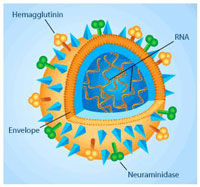IMM, Cenix and Alnylam Discover New Targets in Malaria Infection with RNAi Technology
In Vitro and In Vivo Findings Published in the Journal PLoS Pathogens Identify Novel Host Targets Involved in Malaria Infection
Alnylam Pharmaceuticals, Inc. and Cenix BioScience GmbH announced the publication of a new study in the journal PLoS Pathogens demonstrating in vitro and in vivo RNAi-mediated silencing of novel host factors involved in malaria infection. The work resulted from an ongoing malaria research program started as a collaboration announced in 2005 between the group of Dr. Maria Mota at the Instituto de Medicina Molecular (IMM) in Portugal and Cenix, which was extended to include Alnylam’s therapeutic siRNA technology , involving scientists from both Roche Kulmbach GmbH (formerly Alnylam Europe AG), and Alnylam. The new data show the first genomics-driven identification of novel host factors involved in malaria infection and contribute toward a better understanding of host-pathogen interactions, which may help in developing new prophylactic or therapeutic strategies.
“Our collaboration with Dr. Maria Mota’s group at the IMM and Cenix has resulted in three peer-reviewed scientific papers that have has helped us better understand potential therapeutic opportunities for malaria with RNAi,” said Victor Kotelianski, M.D., Ph.D., Senior Vice-President and Distinguished Alnylam Fellow. “In this new work, we have identified several important host kinases that may prove to be clinically relevant targets to treat malaria infection and have demonstrated an RNAi therapeutic to be effective at silencing these targets in vivo.”
“This study further illustrates the success of the joint efforts between our groups to drive this breakthrough program from initial genomics-enabled discovery of novel targets to in vivo validation, and even identification of therapeutic lead molecules,” noted Dr. Christophe Echeverri, CEO/CSO of Cenix. “We look forward to making further use of these capabilities to advance the fight against malaria and other parasitic diseases that are similarly devastating to the world’s most vulnerable populations.”
In this new study (Prudêncio et al., PLoS Pathogens, 2008), the team of scientists performed a “kinome-wide” RNAi screen to identify novel host factors involved in malaria infection. The screen led to discovery of five targets clearly implicated in malaria, all of which resulted in significant reductions in infection in vitro when silenced with small interfering RNAs (siRNAs), the molecules that mediate RNAi. One of these key targets, PKCzeta, was selected for further evaluation in vivo. In mice given a systemically delivered, liposomally formulated anti-PKCzeta RNAi therapeutic, an inhibitory effect on infection was observed. In fact, loss of PKCzeta function in vivo by RNAi-mediated silencing led to decreased infection rates by approximately 80%. In addition, certain siRNAs also led to a delay in the appearance of parasites in the blood and a significant reduction in average blood parasitemia.
Most read news
Organizations
Other news from the department science

Get the life science industry in your inbox
By submitting this form you agree that LUMITOS AG will send you the newsletter(s) selected above by email. Your data will not be passed on to third parties. Your data will be stored and processed in accordance with our data protection regulations. LUMITOS may contact you by email for the purpose of advertising or market and opinion surveys. You can revoke your consent at any time without giving reasons to LUMITOS AG, Ernst-Augustin-Str. 2, 12489 Berlin, Germany or by e-mail at revoke@lumitos.com with effect for the future. In addition, each email contains a link to unsubscribe from the corresponding newsletter.





















































